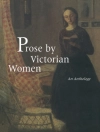In ‘A Room of One’s Own, ‘ Virginia Woolf presents a profound exploration of the relationship between women and fiction, articulated through a rich tapestry of narrative style that blends essay and fiction. Taking the form of an extended essay, Woolf employs stream-of-consciousness techniques and employs a conversational tone to delve into the societal constraints placed upon women writers. Her seminal argument, asserting that a woman must have money and a room of her own to write, challenges the patriarchal constructs of early 20th-century literature and critiques the historical exclusion of women from the literary canon. The literary context of this work is deeply rooted in the feminist movements of Woolf’s time, which aimed at redefining women’s roles in society and art. Virginia Woolf, a pioneering figure in modernist literature, is known for her incisive critique of societal norms surrounding gender and identity. Her life experiences, particularly the constraints she faced as a woman in the literary world and her engagement with the Bloomsbury Group, influenced her stance on women’s intellectual freedom. Woolf’s insightful observations on the struggles faced by her contemporaries, as well as her commitment to gender equality, are beautifully synthesized in this timeless piece. Readers, both scholars and casual fans of literature, will find ‘A Room of One’s Own’ indispensable for understanding the intersection of gender and literary tradition. Woolf’s eloquence and clarity invite readers to contemplate the complexities of authorship and creativity from a female perspective, making it a crucial text for anyone seeking to grasp the evolution of feminist thought in literature.
Virginia Woolf
A Room of One’s Own [EPUB ebook]
Empowering Women in Literature: Breaking Barriers and Finding Success
A Room of One’s Own [EPUB ebook]
Empowering Women in Literature: Breaking Barriers and Finding Success
Buy this ebook and get 1 more FREE!
Language English ● Format EPUB ● Pages 148 ● ISBN 8596547687467 ● File size 0.7 MB ● Publisher Good Press ● City Prague ● Country CZ ● Published 2023 ● Downloadable 24 months ● Currency EUR ● ID 9256540 ● Copy protection Social DRM












